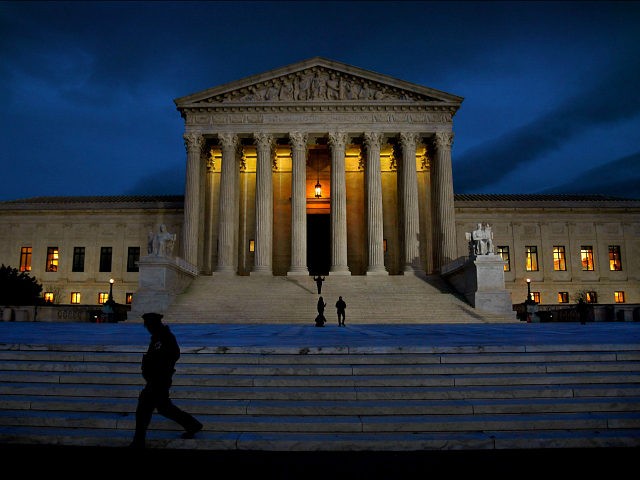The Supreme Court of the United States has given the State of Hawaii until noon Tuesday to file its brief in support of Judge Derrick Watson’s controversial ruling on President Donald Trump’s travel ban.
The Department of Justice announced Friday that it would be headed directly back to the Supreme Court, asking the justices for clarification in light of Watson’s ruling. After the DOJ filed its motion on Saturday, the Supremes gave the State of Hawaii until noon Tuesday to respond.
Watson ruled on Thursday that the State Department’s interpretation of the Supreme Court’s order partially reinstating Executive Order 13,780’s ban on those from six designated Muslim-majority countries was invalid. The Supreme Court had exempted those with a “bone fide relationship” to include “close familial ties” to someone residing in the United States. The State Department had sought to limit this exemption to those with a “parent, spouse, child, adult son or daughter, son-in-law, daughter-in-law or sibling” living in the United Sates, something Watson found unacceptable.
The Justice Department is hoping to have the State Department definition reinstated. Some have raised fears that if Watson’s ruling is allowed to stand, and the exception for family relations is extended to cousins and more distant relations, the exception will, in effect, swallow the rule, returning to an effective stay of the travel ban while the case is pending before the Supreme Court.
Watson is the original judge in the U.S. District Court for the District of Hawaii who enjoined enforcement of President Trump’s second travel ban executive order in March. After he was upheld by the U.S. Court of Appeals for the Ninth Circuit, the Supreme Court finally agreed to hear the case next term and reinstate the ban in the meantime with the above-noted caveat.
While the government could have appealed to the Ninth Circuit, it opted to go directly to the Supreme Court for clarification, presumable due to the Ninth Circuit’s record in this litigation. Should the Supreme Court deny the motion, DOJ likely will then appeal Watson’s ruling in the Ninth Circuit.
The case in question is Trump v. Hawaii, No. 16–1540 now joined to Trump v. International Refugee Assistance Project, No. 16–1436, the other major travel ban case.

COMMENTS
Please let us know if you're having issues with commenting.